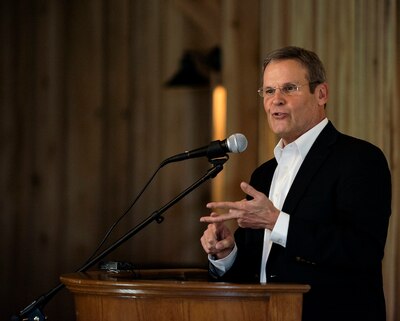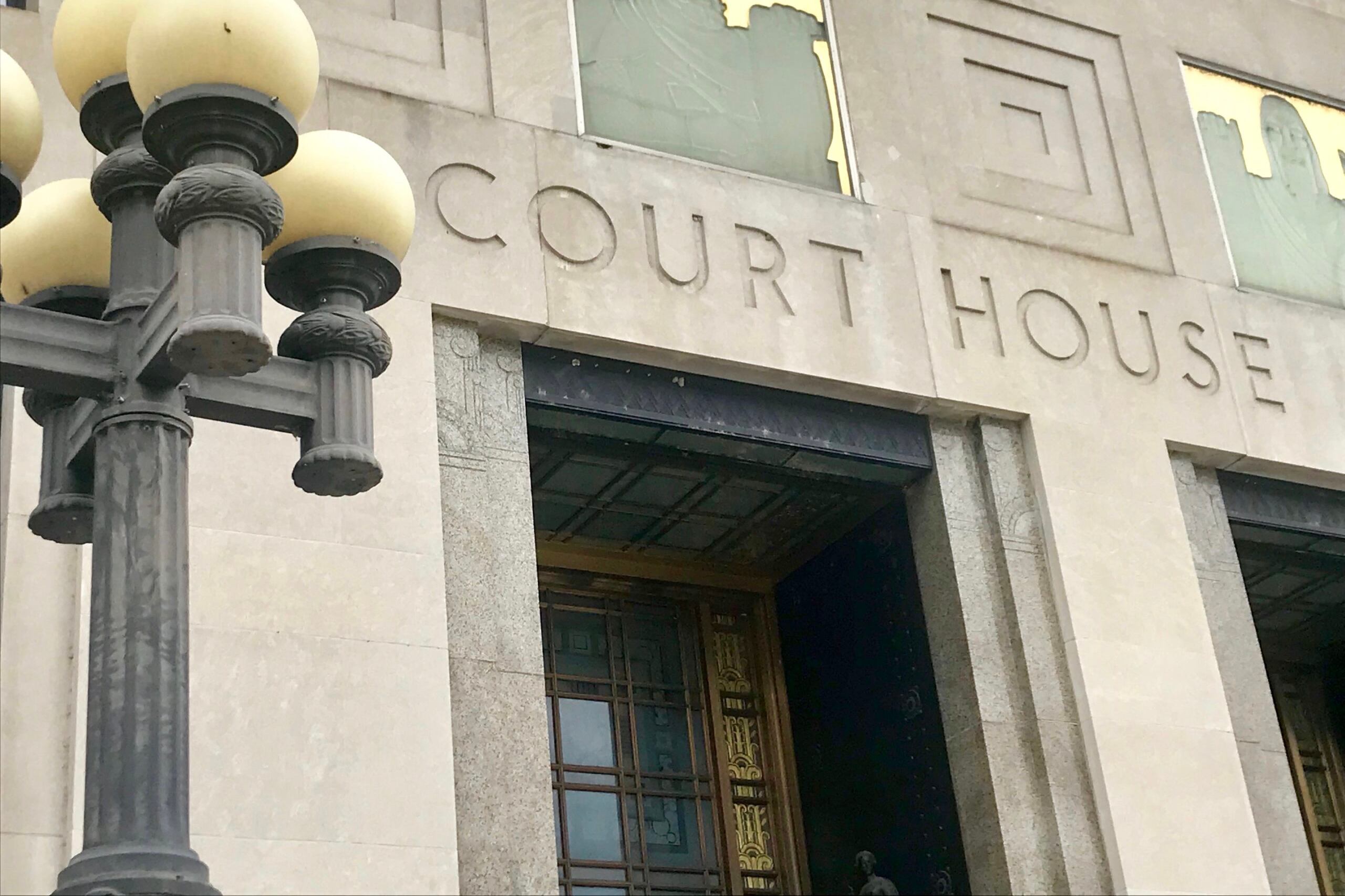Three years after squeaking through the legislature, Tennessee’s controversial private school voucher law has yet to provide a single eligible student with public funding to pay for private schooling — a record that will be difficult to change this fall.
Despite a favorable ruling this month by the state’s highest court, Gov. Bill Lee’s administration must clear numerous legal and logistical hurdles before launching his mothballed Education Savings Account program.
The state Supreme Court’s ruling on May 18 invalidated one of the claims brought by opponents of the law. But litigants behind one of two lawsuits in the case say they intend to press ahead with up to four remaining claims challenging the law’s constitutionality. And plaintiffs in the other suit are considering a similar move.
Equally important, a program with the complexities of vouchers cannot be rolled out in short order. The state education department must process applications from potentially thousands of families — each involving an average of 12 interactions with the applicant, according to court documents. It must revisit its roster of dozens of private school participants and put processes in place to oversee the spending of millions of taxpayer dollars — all in alignment with the school year that, in Tennessee, generally begins in early August.
“The state must begin making administrative preparations by early March or else the ESA Pilot Program will not be ready by fall,” stated a motion by voucher proponents seeking to lift the initial order while the case was under appeal.
The circumstances mean Tennessee’s primary voucher push is likely to remain on pause while lawyers hash out their arguments in court, similar to other voucher battles playing out in Kentucky, Ohio, and West Virginia.
Lee, who has set aside $29 million annually in the state budget to cover the program’s cost, acknowledged the uncertain road ahead when reporters pressed him recently for a new voucher timeline in light of the court decision.

“There are legal decisions yet to be made and, until those are made, then there can’t be any steps going forward,” he said.
Lee’s voucher law passed in 2019, and the education department spent 10 months preparing for its launch. That was all before the pandemic struck. In the years since, private school enrollment has surged in both Memphis and Nashville, the program’s two pilot areas, adding a new hurdle for the voucher program: limited capacity.
“The pandemic brought tremendous shifts in enrollment,” said Claire Smrekar, a Vanderbilt University associate education professor who studies voucher demographics. “If capacity is not in place with independent private schools, then you’re looking at a whole array of problems with this policy right out of the gate. And that will diminish faith in this notion of providing new choices for parents.”
Legal issues are far from settled
Lee’s Education Savings Account program would designate about $7,300 annually to each eligible student who moves from public to private or home schools in Memphis and Nashville. The program was to start with up to 5,000 students in its first year, potentially reaching 15,000 students by the fifth year.
But a Nashville judge blocked the law before its scheduled start in the fall of 2020, ruling for plaintiffs who said it violates the state constitution’s “home rule” provision, which says lawmakers can’t pass legislation that singles out individual counties, unless they have local support. An appeals court agreed.
The legal challenge came from Davidson and Shelby counties, the only two affected by the law. In order to win support, sponsors stripped out other counties with low-performing schools, so the law would apply only to students enrolled in the state’s two largest cities.
In its 3-2 ruling, the high court overturned the lower courts and declared the law doesn’t violate the home rule clause because it governs the actions of local school districts, not the counties that sued and which help to fund those schools.
While Lee hailed the ruling as “a good first step,” voucher critics called it a setback for the principle of local control in Tennessee.
“If the Home Rule Amendment doesn’t stop the legislature from singling out two of 95 counties for injury, I’m not sure why we have a Home Rule Amendment,” said Senate Minority Leader Jeff Yarbro, a Nashville Democrat.
“The trial court and appellate court struck down education savings accounts based on very sound reasoning,” added Wallace Dietz, the law director for Metro Nashville government, whose team has huddled in recent days to determine next steps.
Dietz has until May 31 to decide whether to ask the Supreme Court to reconsider the matter. “We continue to evaluate all options, including the possibility of filing a motion to reconsider,” he said Thursday. (Update: Before the deadline, Metro Nashville petitioned the court to review its ruling and argued that the reasoning outlined in the majority opinion is wrong.)
Meanwhile, other attorneys are analyzing the path forward based on claims in a second lawsuit filed in 2020 on behalf of 11 public school parents and community members in Memphis and Nashville.
“We still feel very strongly about the remaining claims and intend to move forward on them,” said Chris Wood, a Nashville attorney who is litigating that case jointly with the Education Law Center, the Southern Poverty Law Center, and the ACLU.
Their complaint, called McEwen v. Lee, includes four other claims under the Tennessee Constitution:
- Public education (Article 11, Section 12): The constitution requires the legislature to provide for a system of free public schools. Attorneys argue that, by funding private schools through vouchers, the state is funding multiple separate systems, which they say is inconsistent with its constitutional obligation.
- Equal protection: Several clauses guarantee equal protection under the law. Attorneys argue that, while the state is obligated to maintain a system that provides for substantially equal educational opportunities for its residents, vouchers would create unequal systems by targeting two counties and diverting funds from their public school systems to private and home schools.
- Appropriation of public monies: (Article 2, Section 24): The constitution requires the General Assembly to appropriate the estimated first year’s funding for every law passed during a legislative session, but the state did not do that when the voucher bill passed in 2019. Attorneys argue that failure makes the law null and void.
- Basic Education Program: The so-called BEP is the statutory formula for allocating state funds to public schools, and attorneys argue that those funds are not designated for private education. But since the state will switch to a different, voucher-friendly funding formula for the 2023-24 school year, the applicability of the BEP claim depends on whether the state tries to implement the voucher law before that transition.
Voucher battles across the nation typically are fought in state court systems, not the federal courts.
“The most common way that voucher laws violate constitutional protections is to undermine the public education guarantees that are core in state constitutions,” said Jessica Levin, senior attorney for the Education Law Center, which is also involved in voucher litigation in West Virginia.
For instance, she said, private schools funded through a voucher program are not likely to have the same level of academic, accountability and anti-discrimination standards as public schools. “Private schools would be allowed to discriminate against students and families based on things like their religion, LGBTQ status, and disabilities,” she said.
New court to hear lingering case
Several of the McEwen suit’s claims overlap with those outlined by Davidson and Shelby counties in their lawsuit. If attorneys for the two local governments decide to argue those claims, the case is likely to be consolidated by a three-judge trial court appointed by the high court to hear them.
The newly named judicial panel is the result of a 2021 state law creating a statewide court to hear constitutional matters related to state government. Nashville Chancellor Anne C. Martin, who overturned the voucher law, will chair the panel that includes Judge Valerie Smith of Memphis and Judge Tammy Harrington of Maryville.
Tennessee’s voucher law includes another issue that could lead to a legal challenge in federal court, however. The law bars the participation of students who are in the U.S. without permission, which could be in conflict with Plyler v. Doe, the 1982 U.S. Supreme Court precedent that bars discrimination in education based on immigration status. No lawsuit has been filed in Tennessee over that matter.
Tamara Henderson, a Memphis mom to two school-age children, is waiting to see how it all works out.
She applied to participate in the program for its inaugural year but received no voucher money when the program was abruptly halted. Her children attended public charter schools this year and she’s trying to get financial aid for her 13-year-old son to attend a private school, where she thinks he’ll be more academically challenged.
“The money would make a tremendous difference for our family and lessen the financial strain,” said Henderson, a single mom who is self-employed. “I’d like to have that choice.”
Marta W. Aldrich is a senior correspondent who covers the statehouse for Chalkbeat Tennessee. Contact her at maldrich@chalkbeat.org.





